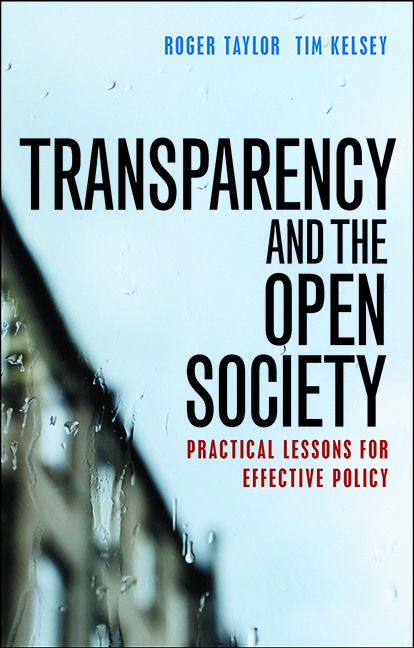10 - Social audit and public reporting
Published online by Cambridge University Press: 05 April 2022
Summary
Perhaps the best known example of using FOI to combat corruption is the story of Mazdoor Kisan Shakti Sangathan (MKSS, or the Association for the Empowerment of Workers and Peasants). Founded in India in the 1980s to fight for better pay and conditions for poorer people, the group identified that one of the principal difficulties it faced was misappropriation of social welfare funds. The group launched a campaign for access to information about welfare budgets, which led to the remarkable sight of peasants protesting outside government offices – calling not for work or housing or food but for information. All they wanted to know was where the money supposedly allocated for their welfare had gone.
The campaign led to two developments – the first, new laws granting rights to information in India; the second, a new method of using these rights. In its original incarnation, this was called Jan Sunwais or ‘public hearings’. These events would take place after a successful petition for information relating to welfare spending in, say, a particular village. A public meeting would be called and the information would be read out, allowing an on-the-spot crowd-sourced audit of the accuracy of the information. Shekar Singh, who worked on the National Campaign for the Right to Information, has described how they work:
The first jansunwai in Kot Kirana panchayat (December 1994) was held in front of an incomplete building with no roof. As the list of purported expenses was being read out, an item on which 30,000 rupees had been spent the previous year in constructing the roof of a government office came up for verification. Everyone burst into spontaneous laughter, for the roofless building nearby was that very government office. In another case, the name of a villager was read out as the recipient of hire charges for his bullock cart. The agitated villager protested loudly that he was never given any money and, in any case, he did not own a bullock cart. He added, for good measure, that if they still insisted that they had hired his bullock cart, could they please return it to him.
This campaign was the start of what has become a worldwide effort to develop social audit and public expenditure tracking – the idea that the public could stop the corrupt misappropriation of funds by policing the use of public money.
- Type
- Chapter
- Information
- Transparency and the Open SocietyPractical Lessons for Effective Policy, pp. 173 - 186Publisher: Bristol University PressPrint publication year: 2016

